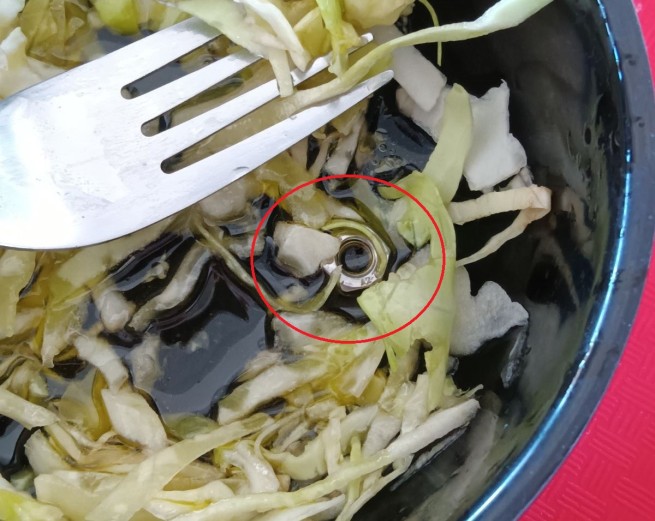A special summit in Athens, organized by WHO and the Greek Ministry of Health, discussed the consequences of the pandemic in the world, in particular, the harm it caused to the mental health of people.
The pandemic has fundamentally changed the way and the rules of life around the world, killed more than 4 million people, and bankrupted many businesses. Euronews correspondents spoke with Hans Kluge, Director of the WHO European Office, who attended the Athens Summit.
The conversation began with the topic of investigating the causes of the emergence of coronavirus. When asked whether there is reason to suspect its leak from a laboratory in China and what is the further plan of action in this direction, Hans Kluge replied:
I think it is better to ask this question to the head of the WHO, Tedros Ghebreyesus, because I am responsible for the European region, which includes 53 countries, and China is not among them. Therefore, I am not privy to the details of the investigation in China. I know what we all have heard from the WHO Director General, namely that all versions are allowed and will be investigated. But let’s not forget that investigations into the origins of the Middle East coronavirus (MERS) and the SARS virus took up to two and a half years to identify the animal from which it passed to humans. Therefore, it is normal that the investigation will take some time.
When asked about the complexity of such actions, a WHO official noted:
I think this question should be addressed to Geneva, because I am responsible for 53 European WHO members, not China. Therefore, it would be wrong for me to answer this question, frankly, because I do not deal with China. But I know that Tedros Ghebreyesus called on specialists to create an expert group to conduct the second phase of the investigation. We have to give the investigation a little time.
Then the conversation turned to the topic of vaccination, the success of vaccination campaigns in different countries and ways out of the pandemic. When asked about the effectiveness of the vaccination process, the Director of the WHO Office for Europe replied:
There are three ways to get out of the pandemic, I would say. I call this approach V.I.L. “B” are options. We need to look carefully at the options, in this case the delta option, that affects people who are unvaccinated or under-vaccinated. “And” is immunization that needs to be accelerated. The answer to your question is no, it is unsatisfactory. In the pan-European region, only 26% of people are vaccinated. And “L” is people. We need to urge them more to be vaccinated and continue to implement sanitary measures, including wearing masks if it is impossible to distance themselves more than one and a half meters.
The journalist asked a question about Kluge’s attitude to compulsory vaccination, to which he replied:
The controversy is very heated. WHO calls for any measures to scale up vaccination, as long as they are not contrary to the law and accepted by society. But this is not the first step to take. First you need to understand what people think, what their ideas are, and then work with those groups in society who have doubts about vaccination. In my opinion, they can be influenced through dialogue.
Regarding vaccinations in Asia and Africa, the official said:
We are witnessing great injustice. Even in the European region, there are countries where less than 10% of the population is vaccinated. You are right to look at some African countries, for them the only way out is solidarity. No one is safe until everyone is safe. Because the aggressive delta option crosses borders. But I see examples of solidarity, including from Greece, which is sharing vaccines for free.
The conversation could not but touch upon the topic of new strains of coronavirus in order to find out Kluge’s opinion on this matter. His answer was:
There will be other options, no doubt. There are now hundreds of options that we have been tracking from the very beginning. But they are often not very dangerous. But the Delta and Delta-plus options need to be carefully monitored. How to solve this problem? The more infections, the more options. In other words, you need to speed up vaccination.
The topic of the Athens summit is mental health issues. The head of the WHO European office presented data on the impact of COVID-19 on the mental health of Europeans. In an interview with reporters, he told what conclusions can be drawn on their basis:
The main finding is that mental health was a problem before the pandemic. This is the main reason for getting a disability. Every sixth person in the pre-dock era had a mental disorder. Our research has established that we are all vulnerable. Any of us, even if he is full of energy, can develop mental disorders, especially anxiety and depression. This is what the summit was dedicated to. I am very grateful to Greece, Prime Minister, Minister of Health Vasilis Kikilias, for bringing the issue of mental health to light. It should be the cornerstone of our society, our way of life. Mental health concerns everyone.
We must pay special attention to high-risk groups such as children and adolescents, because they have been hard hit by the school closures. School is not only an educational institution, but also a protective one, in the case of, for example, domestic violence, which is now attracting attention. The study also showed that we need to pay more attention to our health and social workers. I would like to express my gratitude to all Greek and European social workers who have shown and continue to show heroism during the pandemic.
The last question concerned new approaches to promoting a healthy lifestyle, whether it is possible to do this in conditions of sanitary restrictions. To which Kluge confidently replied:
Sure. We have no choice. Unusual times require unusual solutions. The WHO Office for Europe expects to adopt a European action plan in September.






More Stories
4 scenarios for the development of the war in Ukraine
There was a scandal in Cyprus over the Prime Minister's plane, donated by K. Mitsotakis
Nuclear wrestling between the USA and Russia: are we heading towards the use of strategic weapons?